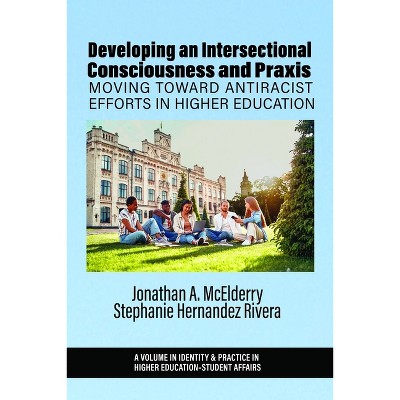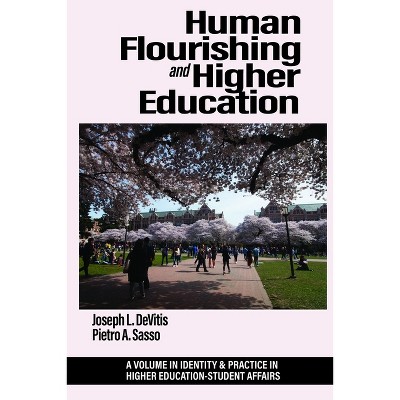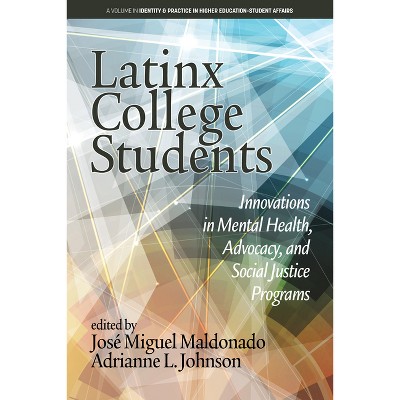Do Better - (Identity & Practice in Higher Education-Student Affairs) by Sarah E Schoper & Amy E French

About this item
Highlights
- Do Better illustrates the meaning of ableism through compelling narratives of graduate students in student affairs and higher education graduate preparation programs, who self-identify as disabled.
- About the Author: Dr. Sarah E. Schoper is an Instructor in the Higher Education track of the Educational Leadership masters degree program at Lindenwood University, Missouri, USA.
- 156 Pages
- Education, Inclusive Education
- Series Name: Identity & Practice in Higher Education-Student Affairs
Description
About the Book
Do Better illustrates the meaning of ableism through compelling narratives of graduate students in student affairs and higher education graduate preparation programs, who self-identify as disabled. These stories provide meaningful examples based on lived experiences.
Book Synopsis
Do Better illustrates the meaning of ableism through compelling narratives of graduate students in student affairs and higher education graduate preparation programs, who self-identify as disabled. These stories provide meaningful examples based on lived experiences. Furthermore, they aim to help higher education professionals, faculty, and staff recognize ableism and identify ways to dismantle these oppressive realities, both in their own practices and environments of influence.
The book seeks to honor the experiences of individuals with disabilities and provide opportunities for improvement in the areas of inclusion, community, and belonging. There is much work to be done in supporting disabled individuals within the collegiate environment and this book highlights both the challenges those with disabilities face in the classroom, graduate assistantships, and other relevant campus environments. Do Better provides solutions and strategies for integrating more inclusive practices into our work. The narratives shared within this book indicate problems that graduate students face and also opportunities for improvement.
The insidious nature of ableism means that it occurs on college campuses in a multitude of ways. Ableism creeps into the lived experiences, social interactions, academic endeavors, and professional opportunities within the field of higher education and student affairs. Do Better raises awareness about the various forms of ableist oppression faced by graduate students, aiming to inspire action and drive change.
About the Author
Dr. Sarah E. Schoper is an Instructor in the Higher Education track of the Educational Leadership masters degree program at Lindenwood University, Missouri, USA. Dr. Schoper also teaches within the Adult Education program at Iowa Central Community College, Fort Dodge, Iowa, USA.
Dr. Amy E. French is an Associate Professor in the School of Counseling, Higher Education, Leadership, and Foundations at Bowling Green State University, Ohio, USA.
Shipping details
Return details
Trending Non-Fiction











